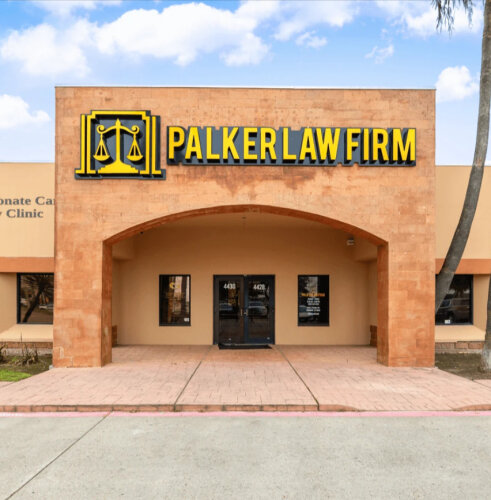Best Property Insurance Lawyers in Illinois
Share your needs with us, get contacted by law firms.
Free. Takes 2 min.
Or refine your search by selecting a city:
List of the best lawyers in Illinois, United States
About Property Insurance Law in Illinois, United States
Property insurance in Illinois is designed to protect property owners from financial loss due to unexpected events such as fire, theft, vandalism, storms, and other covered perils. Typically, property insurance policies cover both residential and commercial properties, including the structure itself and, in many cases, the contents inside. Illinois law regulates the terms, coverage options, and claims processes for property insurance to ensure policyholders are treated fairly and that insurance companies comply with state standards.
The Illinois Department of Insurance oversees the industry, ensuring companies follow state mandates and consumer protection rules. Property insurance policies often differ in scope, exclusions, and requirements, making it important for individuals and businesses to understand what their specific policy covers, as well as the process for filing and resolving claims.
Why You May Need a Lawyer
Several circumstances can lead individuals or businesses to need legal assistance with property insurance matters in Illinois. Some common scenarios include:
- Your claim is denied, delayed, or only partially paid by your insurance provider.
- The insurance company misinterprets policy language or coverage limits.
- You face accusations of fraud or misrepresentation from the insurer.
- The insurer offers a settlement that is significantly less than your claimed loss.
- There is a dispute over the value of property lost or damaged.
- The insurance company alleges that the damage is excluded under the policy.
- Issues arise during subrogation or with mortgage lenders regarding payouts.
A lawyer who specializes in property insurance law can help you understand your rights, interpret your policy provisions, represent you in negotiations, and, if needed, litigate your claim in court.
Local Laws Overview
Illinois has specific laws and regulations related to property insurance. Some key aspects to be aware of include:
- Statutory period for claims: Illinois generally requires insurers to promptly investigate and settle claims. If a claim is denied, insurers must provide a written explanation detailing the reasons.
- Appraisal provisions: Most property insurance policies in Illinois contain an appraisal clause, allowing both the insured and insurer to hire appraisers if there is disagreement over loss value.
- Anti-concurrent causation: Illinois courts may enforce policy provisions that limit coverage if a non-covered and a covered peril occur simultaneously.
- "Bad faith" claims practices: Under the Illinois Insurance Code, policyholders can seek additional damages if an insurer unreasonably delays or denies payment without a valid reason.
- Replacement cost vs. actual cash value: Illinois law differentiates between replacement cost policies (cost to rebuild or replace property) and actual cash value (cost to repair or replace, minus depreciation).
It is important to review your policy carefully and consult with a legal professional if you have questions regarding coverage limitations, endorsements, or exclusion clauses.
Frequently Asked Questions
What types of property insurance are available in Illinois?
The most common types are homeowners insurance, renters insurance, condo insurance, and commercial property insurance. Each of these offers varying levels of protection for different kinds of property and risks.
How do I file a property insurance claim in Illinois?
Notify your insurer as soon as possible after damage or loss, provide necessary documentation, and follow the procedures outlined in your policy for submitting a claim. Make sure to keep records and correspondence.
What are my rights if my insurance claim is denied?
If your claim is denied, you have the right to receive a written explanation from your insurer. You can challenge the denial, submit additional information, request an appraisal, or consult a property insurance attorney for assistance.
Can my insurer cancel my property insurance policy?
In Illinois, insurers can cancel a policy under certain conditions, such as nonpayment of premiums, fraud, or significant changes that increase risk. They must provide written notice and a valid reason according to state law.
What is the appraisal process in property insurance disputes?
If there is disagreement over the amount of the loss, either party can request an appraisal. Both the policyholder and insurer select appraisers, and, if necessary, those appraisers select an umpire to determine the value of the loss.
What if my insurance payout does not cover all my damages?
You may be eligible for additional compensation if your policy includes replacement cost coverage or if you can demonstrate errors in the insurer's valuation. A property insurance lawyer can advise you on your options.
Are floods and earthquakes covered by standard property insurance in Illinois?
Standard property insurance policies generally do not cover floods or earthquakes. You need to purchase separate policies or endorsements for these perils.
What should I do if the insurer accuses me of insurance fraud?
Consult a lawyer immediately. False accusations of fraud can have serious consequences. A legal professional can help you defend your rights and address the insurer's concerns.
Can I sue my insurer for acting in bad faith?
Yes. Illinois law allows policyholders to take legal action against insurers that unreasonably delay, deny, or underpay valid claims.
How long do I have to file a lawsuit related to a property insurance claim in Illinois?
The deadline, known as the statute of limitations, is usually set in your insurance contract and generally ranges from one to two years from the date of the loss or denial. Check your policy or consult an attorney to confirm your timeline.
Additional Resources
If you need further information or assistance on property insurance issues in Illinois, the following resources can be helpful:
- Illinois Department of Insurance - Oversees insurance regulations and assists consumers with complaints.
- Illinois Attorney General Consumer Protection Division - Provides consumer rights information related to insurance.
- National Association of Insurance Commissioners (NAIC) - Offers educational materials about insurance policies and provider standards.
- Local bar associations - Can refer you to experienced property insurance lawyers in your area.
Next Steps
If you are experiencing a property insurance issue in Illinois, here is how you can proceed:
- Review your insurance policy thoroughly, including all coverage, exclusions, and deadlines.
- Document all damage or loss with photographs, receipts, and correspondence.
- Submit your claim promptly and keep records of all communication with your insurer.
- If you encounter problems such as denied or delayed claims, consult a property insurance attorney to review your case.
- Contact the Illinois Department of Insurance to file a complaint if you believe your insurer is not acting in accordance with state law.
- Seek referrals from local bar associations or legal aid organizations experienced in property insurance disputes.
A qualified legal professional can help you navigate complex policy language, advocate for your rights, and represent you during negotiations or in court if necessary.
Lawzana helps you find the best lawyers and law firms in Illinois through a curated and pre-screened list of qualified legal professionals. Our platform offers rankings and detailed profiles of attorneys and law firms, allowing you to compare based on practice areas, including Property Insurance, experience, and client feedback.
Each profile includes a description of the firm's areas of practice, client reviews, team members and partners, year of establishment, spoken languages, office locations, contact information, social media presence, and any published articles or resources. Most firms on our platform speak English and are experienced in both local and international legal matters.
Get a quote from top-rated law firms in Illinois, United States — quickly, securely, and without unnecessary hassle.
Disclaimer:
The information provided on this page is for general informational purposes only and does not constitute legal advice. While we strive to ensure the accuracy and relevance of the content, legal information may change over time, and interpretations of the law can vary. You should always consult with a qualified legal professional for advice specific to your situation.
We disclaim all liability for actions taken or not taken based on the content of this page. If you believe any information is incorrect or outdated, please contact us, and we will review and update it where appropriate.
Browse property insurance law firms by city in Illinois
Refine your search by selecting a city.













